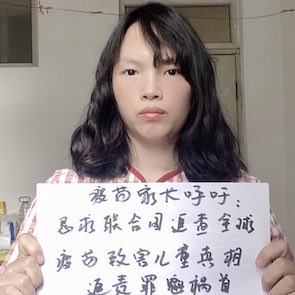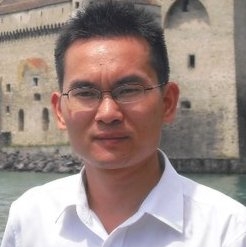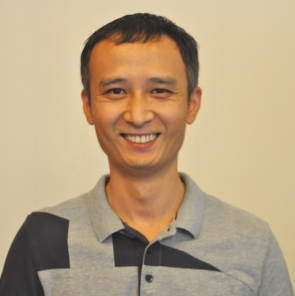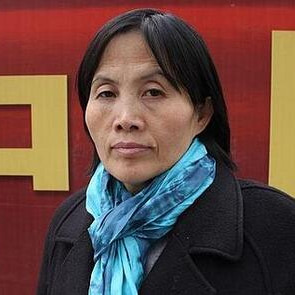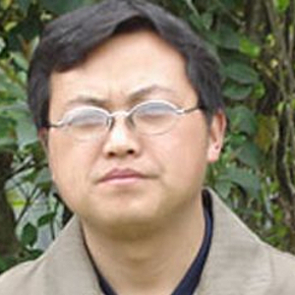Hold China Accountable at HRC42 for Persecuting Economic, Social and Cultural Rights Defenders
On the Human Rights Council, China has referred to its achievements in economic, social, and cultural rights, citing them as justification for its systematic refusal to abide by UN principles on protecting civil and political rights. Member states on the Council must be aware that, in China, the government has jailed many human rights defenders protecting economic, social and cultural rights, and shut down civil society organizations promoting equal protection of those rights. During the 42nd Session of the Human Rights Council, member states must take action to hold China accountable to its human rights obligations including its own HRC membership pledges. Potential actions include speaking out and raising concerns, making inquiries, or issuing joint statements.
We bring to your attention human rights violations in China that took place in the past year alone. The Chinese government detained a number of human rights defenders working on environmental, housing, land, labor, public health, and disability rights, as well as those who fight for equal protection against discrimination (See Appendix of individual cases). Some of them have disappeared into police custody. Authorities also punished citizen journalists and NGO workers who reported on and documented socio-economic and cultural rights violations. We strongly urge you to bring up these cases involving persecuted socio-economic rights defenders in your speeches on the floor of the HRC 42nd Session, raise them with the delegation of the People’s Republic of China, and demand their release in your statements or joint statements.
We recognize that economic development makes an important contribution to the enjoyment of all human rights. Yet, human rights are indivisible, interdependent, and interrelated. Deprivation of any human right negatively impacts the enjoyment of all other human rights. The Chinese government’s violation of the rights of numerous defenders to civil and political rights of freedom of expression, peaceful assembly and association, the right to be free from arbitrary detention, torture, forced disappearance, and the protection of due process rights, guaranteed in the Universal Declaration of Human Rights, is detrimental to the enjoyment of economic, social and cultural rights in China.
The “China model” that champions economic development at the expense of equal protection of universal human rights, promoted by the Chinese government at the UN, has led to violations of all types of human rights in China. In today’s China, millions of low-income families cannot afford the costs of skyrocketing healthcare and medical treatment; millions of workers and migrant labourers have no protection from hazardous workplace conditions or compensation for injuries or occupational diseases, no bargaining rights for fair wages and benefits due to the governmental ban on independent labour unions; millions of urban and rural residents suffer from polluted air, water, and soil as their complaints are scrubbed off the Internet, and their protests crushed by police; and government policies and laws continue to allow or encourage discrimination against women, migrant workers, persons with disabilities or living with HIV/AIDS and hepatitis, ethnic minorities, and LGBTQ persons.
We draw your full attention to the Chinese government’s mass arbitrary detention of ethnic Uyghurs and other Turkic Muslim minorities in extrajudicial re-education camps in the Xinjiang region and systematic suppression of religious freedom in Xinjiang and Tibet. We urge you to speak up about the systemic violations of civil and political rights in Xinjiang and Tibet, which have posed an existential threat to the cultural rights, as well as economic and social rights of millions of ethnic minorities in these regions.
The Chinese government’s approach to governance and development has proven to be a total failure in promoting equal protection of not only civil and political liberties but also economic, social and cultural human rights. The so-called “China model” has also posed an existential threat to the greater freedom the people in Hong Kong enjoy under “one country, two systems.” It rejects and undermines democratic political institutions, rule of law, and basic civil and political rights. Please vocally support the universal rights of the Hong Kong people, including the rights to free expression, peaceful assembly; and speak out about China’s lack of respect for the principle of the “one country, two systems” framework in Hong Kong.
When you speak up on behalf of individual human rights defenders and on areas of concern, you demonstrate your governments’ strong commitment to upholding universal human rights. As a member of the Human Rights Council, China is expected to uphold the highest standards of human rights and it is imperative for fellow Council members to hold the government to this standard. When the Chinese government’s public pledges at the UN Human Rights Council do not align with its actions at home, when China has failed in providing equal protection of economic, social and cultural rights to all Chinese citizens, as well as, and partly due to, its systematic deprivation of civil and political rights, all member states of the UN have a duty to act.
Sincerely,
Chinese Human Rights Defenders
Covenants Watch
Front Line Defenders
Hong Kong Christian Industrial Committee
Human Rights Network for Tibet and Taiwan
International Labor Rights Forum
International Service for Human Rights
Judicial Reform Foundation
Reporters Sans Frontières/Reporters Without Borders
Safeguard Defenders
Taiwan Association for Human Rights
Taiwan Alliance to End the Death Penalty
Taiwan Labour Front
Taiwan Support China Human Rights Lawyers Network
Treatment Action Group
World Organisation Against Torture (OMCT)
Appendix: Individual Cases of Persecuted Socio-Economic Rights Defenders in China
We strongly urge you to bring up the following cases involving persecuted socio-economic rights defenders in your speech on the floor of the Human Rights Council 42nd Session, raise them with the delegation of the People’s Republic of China, and demand their release in your statements or joint statements:
- Anti-discrimination and health rights NGO workers Cheng Yuan, Liu Dazhi and Wu Gejianxiong have been detained incommunicado since July 22 on “subversion of state power” grounds, which carries a potential life sentence. On August 26, authorities formally arrested all three. The men work at the NGO Changsha Funeng, which has promoted legal and rights protections for disadvantaged groups through policy advocacy and legal empowerment since it was founded in 2016. China currently chairs the Programme Coordinating Board of UNAIDS .
- Victims and their families of one of the worst public health crises in China in recent years—defective vaccinations—have faced criminal prosecution for advocating for improved regulations and protection for victims, which are the same goals touted by the government. On July 26, Henan authorities indicted the mother of a baby disabled by a faulty vaccine on charges of “picking quarrels and provoking trouble.” He Fangmei is being prosecuted for setting up a campaign group that organized families of victims to advocate for vaccine safety and compensation to victims. She faces a potential 10-year prison sentence.
- Environmental rights defenders have been targeted with criminal prosecution in the past year, despite the government’s pledges at international forums that China is committed to combating climate change. A Jiangsu court sentenced activist Ji Shulong to four years in prison on August, citing articles she wrote on corruption and pollution. Xue Renyi, the founder of the environmental NGO “Green Leaf Action,” has been detained since May 2018. Police told him that Green Leaf Action was being “controlled” and “manipulated” by “foreign forces,” and said that his group’s campaigns for universal healthcare, social security, environmental protection, and food safety constituted “illegal activities.”
- The Chinese government has suppressed housing rights defenders in its assault on socio-economic rights defenders. Chen Jianfang began defending land and housing rights after she and her family lost land to government-backed developers. Ms. Chen worked alongside the late activist Cao Shunli in advocating for civil society to play a role in the Universal Periodic Reviews of China in 2009 and 2013. Both faced reprisals as a result, and Ms. Cao died in custody after being died medical treatment. Ms. Chen has been forcibly disappeared since March 18, 2019 after she penned an essay marking the fifth anniversary of Ms. Cao’s death in detention. In July, authorities informed her lawyer that she had been formally arrested the previous month on “inciting subversion of state power” charges but refuse to reveal her location.
- The Chinese government has ramped up persecution of labor rights advocates, including factory workers, activists, researchers, NGO staff, and social workers since a July 2018 crackdown on striking workers at the Jasic Technology Factory in Shenzhen. Four Jasic workers—Li Zhan, Liu Penghua, Mi Jiuping and Yu Juncong—and a local NGO employee Fu Changguo were arrested after the workers tried to form a union to address workplace grievances like unpaid wages. The Jasic workers strike caught the attention of many students or recent graduates from elite universities, who organized and travelled to Shenzhen to support the workers and help push for protection of labor rights, resulting in a government crackdown. Since January 2019, police have expanded its persecution of labor rights defenders and arrested five labor NGO workers, including the prominent director of a local migrant labor NGO, and detained three social workers focusing on labor rights and a labor activist working in a factory.
- Citizen journalists reporting on socio-economic rights abuses have faced the wrath of the Chinese government. Three activists— Ke Chengbing, Wei Zhili, and Yang Zhengjun—running an online independent media platform “iLabour” were disappeared into “residential surveillance at a designated location” (RSDL) between February-April 2019, and then arrested in August. Their detentions are likely in retaliation for their efforts to support migrant workers sickened with occupational diseases. A Sichuan court sentenced activist and citizen journalist Huang Qi to twelve years in prison in July on two “leaking state secrets” charges in relation to his reporting on rights abuses. NGO director Liu Feiyue received a five-year sentence in January for running Civil Rights & Livelihood Watch, which had reported on rights abuses like the involuntary psychiatric detention of dissidents. Both men have been imprisoned despite an April 2018 opinion from the Working Group on Arbitrary Detention that they should be released.
